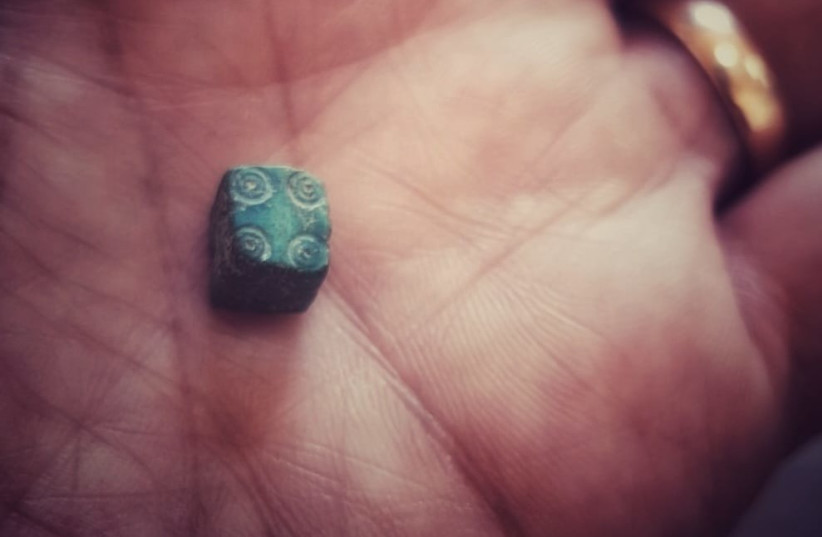Archaeologists working under the auspices of the Israel Antiquities Authority have made a remarkable discovery in the City of David National Park, uncovering a gaming die that dates back to the 13th century. The find was made during routine soil sifting at the Pool of Siloam, a site known for its rich archaeological significance.
The small die, crafted from bone, features engravings of circles with numbers from 1 to 6 on each face, closely mirroring the design of modern dice.
Dr. Filip Vukosavović and Itamar Berko, the directors of the excavation, emphasized the historical importance of such finds. "Bones were a readily available and inexpensive material in ancient times," they explained. "They were used to create a variety of everyday items, including musical instruments, makeup utensils, riding pins, dining utensils, and, evidently, items for games."
This gaming die is recognized as the oldest known gaming tool to date. Archaeological evidence traces the existence of similar dice back to as early as 2000 BCE. The die discovered in the Pool of Siloam has been accurately dated to the Ayyubid period, specifically the 13th to 14th centuries CE, providing a tangible connection to the leisurely pursuits of those times.
Significant archaeological site
The City of David continues to be a significant archaeological site, offering insights into the daily lives of its ancient inhabitants. This latest discovery adds to a growing collection of artifacts that illuminate the cultural and social practices of historical civilizations in the region.

The Israel Antiquities Authority plans to display the ancient gaming die in a forthcoming exhibition, allowing the public to glimpse into the past through the leisure activities that have united cultures through millennia.
